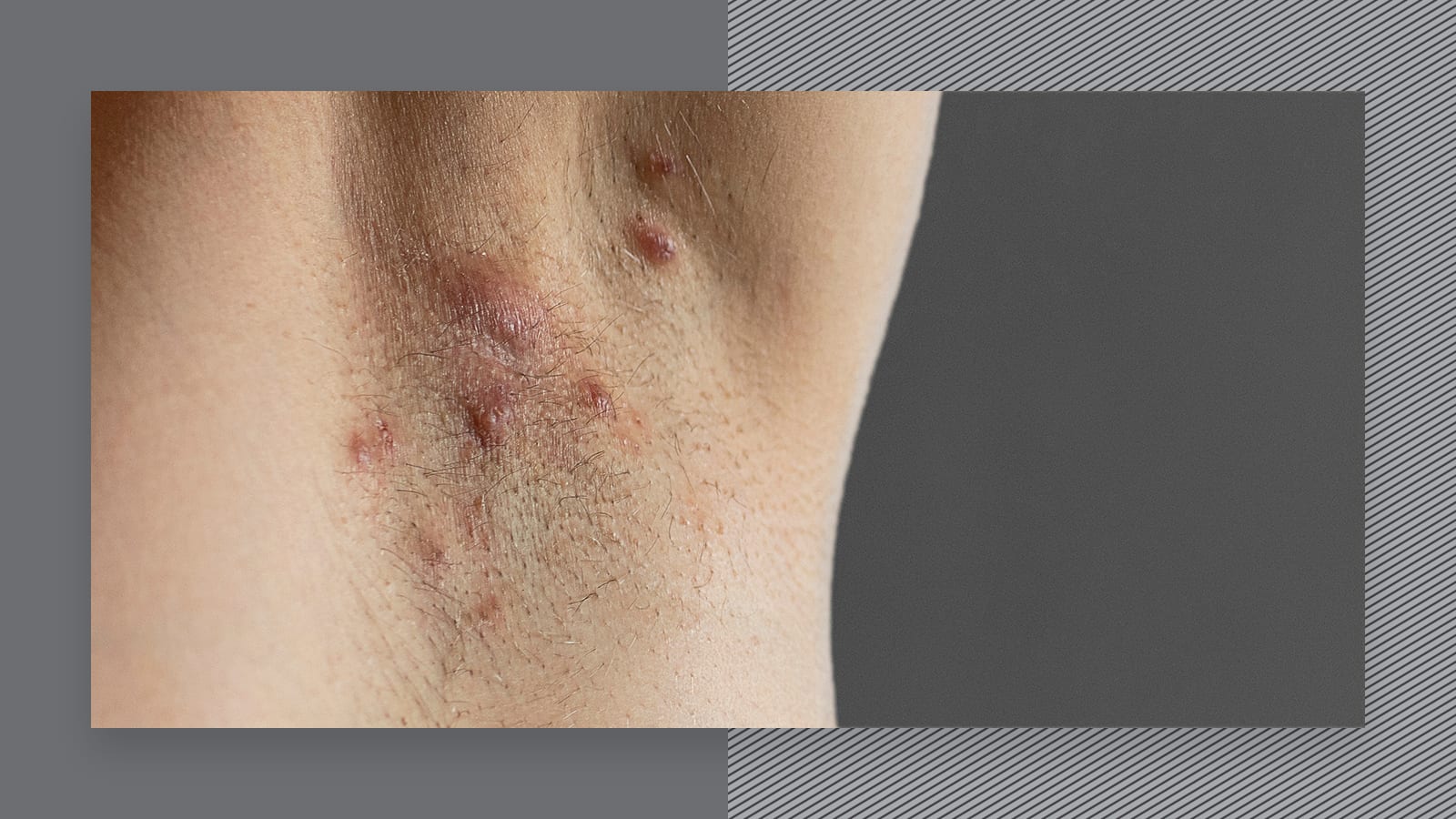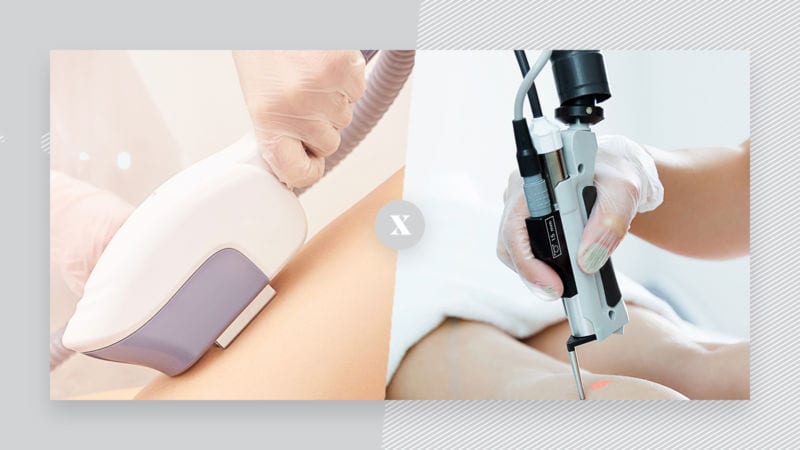Hidradenitis suppurativa and laser hair removal
What is hidradenitis suppurativa?
Hidradenitis supperativa is a skin condition that can cause painful abscesses to appear on the skin. These abscesses can lead to severe swelling and eventually lead to scarring. This condition occurs near hair follicles where sweat glands are located. Blackheads may appear on the skin first. Over time these can develop into painful lumps. And finally these lumps can grow tracks between them and form a large swelling in the area. There are 3 stages of this condition 1 being very mild and 3 being very severe. Laser hair removal can help hidradenitis suppurativa but is only suitable for mild forms of this condition.
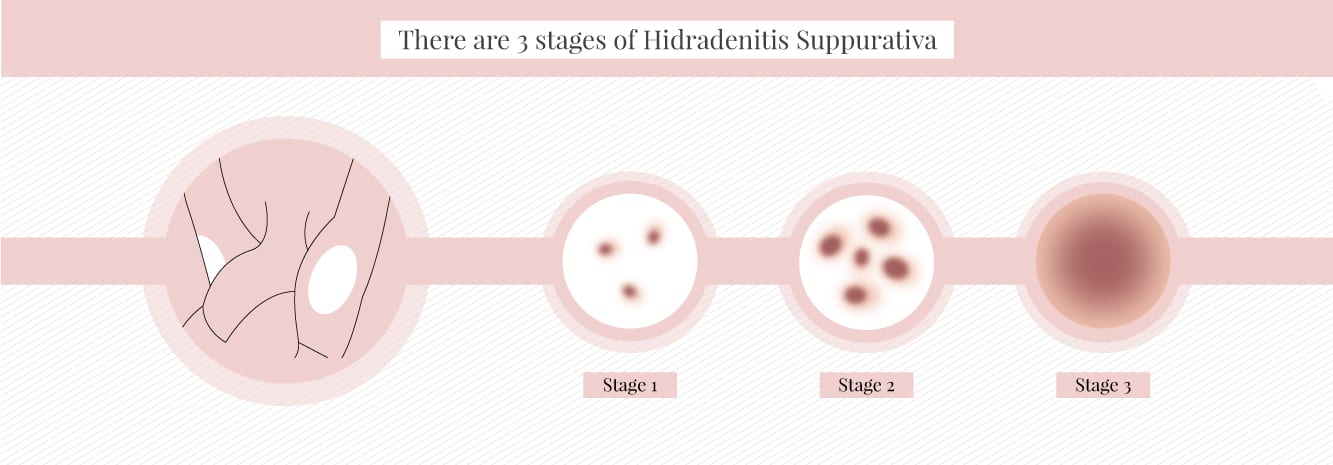
If left untreated this condition can lead to severe and long lasting effects. Because infection can be so prolonged and cause so much damage deep in the skin it is important that this condition be treated. If not this can lead to long term scarring along with other issues. Because scarring can be so noticeable it can lead to issues with self confidence.
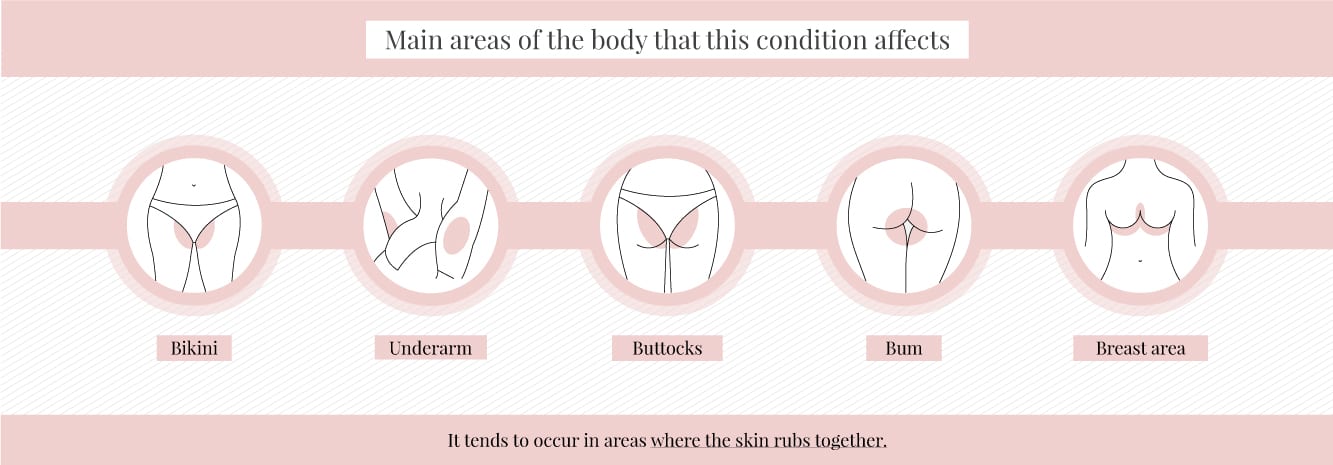
What causes hidradenitis suppurativa?
There is no known exact cause for this condition. It is thought that it could be connected to changes in hormone levels or immune system issues. It may also be hereditary or be related to smoking or weight gain. Having this condition is not related to poor hygiene, nor is it contagious. Women are more prone to developing this condition but men can also suffer with it too. This condition can cause problems with self confidence and over time can have a negative effect on a person’s well being. Laser hair removal can help in mild cases of hidradenitis suppurativa.
Is it safe to have laser hair removal with hidradenitis suppurativa?
Yes, it is safe to have laser hair removal if you have stage 1 or 2 of this condition. If you have a very severe (stage 3) form of hidradenitis suppurativa you will not be suitable for laser hair removal. For both stages 1 or 2, if a flare up was to occur which resulted in painful abscesses forming you will have to wait until it’s under control before starting laser. Due to the skin being inflamed in the area laser treatment is not recommended at this time. We would always recommend you consult your doctor before starting laser hair removal if you have this condition.
During a laser hair removal treatment high intensities of heat are used to target and destroy hair follicles. The laser will pulse over the skin delivering heat and energy. This heat travels down the hair follicle and will cause damage to the base of the hair. It is important that the skin is healthy to withstand this. If skin is irritated this heat may aggravate the area and cause your condition to worsen.
To prepare the skin for laser hair removal treatment all excess hair above the skin must be removed. If skin has developed an abscess it is not recommended that the area be shaved as this may cause the abscess to open and result in the infection spreading to other areas.
Any medications to treat hidradenitis suppurativa would need to be checked before starting a course of laser
If you are currently on medication to control HS, you may have to wait until you have finished your course. A lot of medications used to control this condition cause your skin to become photosensitive (sensitive to light). These will need to be checked before you go ahead with treatment. If your medications contain ingredients that cause photo sensitivity you will have to wait some time before you can start treatment. A consultation and patch test is required before starting a course of treatment so this can be discussed with you and a treatment plan put in place.
How can laser hair removal help hidradenitis suppurativa?
Laser hair removal can help Hidradenitis suppurativa by removing the hair within the hair follicle and lessen the chances of the follicle becoming infected. Sweat glands are connected to hair follicles. These glands can become clogged over time with hair and skin. Over time the follicle walls shrink and contract as there are no hairs breaking the surface of the skin.
If you have a severe form of this condition laser hair removal will not be an option for you.
Other things you can do to help control this condition
Although there is no cure for this condition there are ways to help manage it. As a course of laser hair removal can take time so it’s important to try to prevent flare ups. If you experience flare ups sessions may have to be postponed until skin has returned to normal.
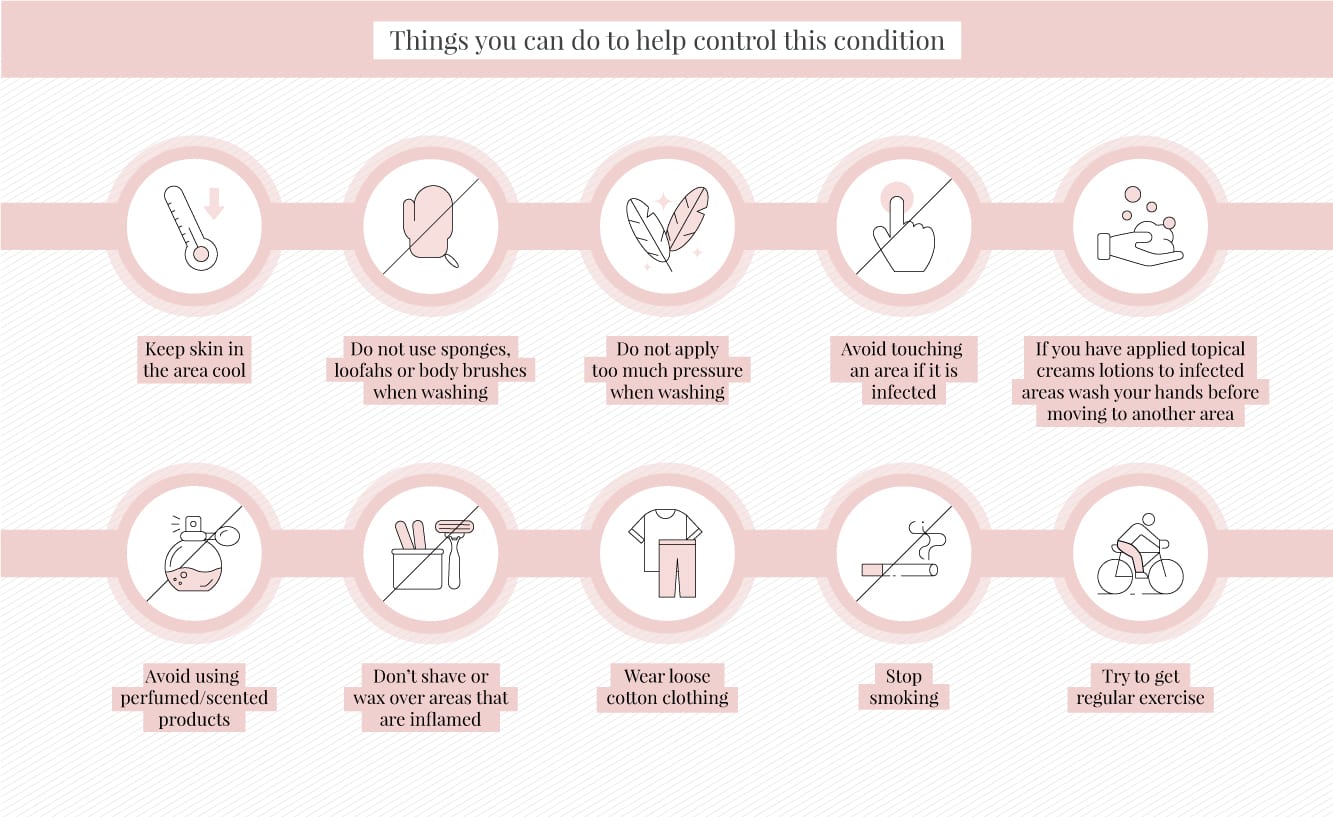
Other treatments that can help this condition
Medication/Antibiotics
If the area becomes infected your doctor may prescribe you a course of antibiotics. Some of the medications used to treat hidradenitis suppurativa can cause photo sensitivity so this may affect your course of laser hair removal. If you are undergoing a course of laser and have a flare up and are prescribed medication always check with your laser provider.
Steroid injections
These injections can help with the pain and discomfort of these swellings. These are recommended by doctors for severe cases.
Surgery
In very severe cases surgery may be needed, in some cases all of the affected skin may be removed and a skin graft used to help the healing process. This however does not prevent this condition from returning.
Unsure if you are suitable for laser hair removal treatment?
Come and talk to us. We have experience with people who suffer from HS and have had laser hair removal with us. For most we have seen improvements over time. It’s safe to say laser hair removal is not a quick fix for this condition but it can help with decrease the severity of flare ups. During your consultation we will talk to you and give you honest advice. Treatment areas will also be assessed to make sure it is safe to proceed with treatment. We may also ask you to consult with your doctor before you start just as a precaution. Your safety comes first and will only ever perform a treatment if we feel it is safe to do so. Our friendly team are on hand to talk to you.
Contact us today to arrange a free 30 consultation and patch test.
